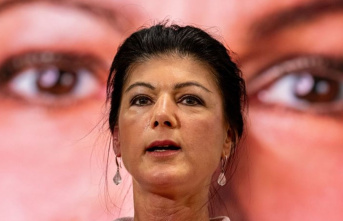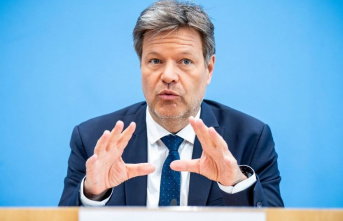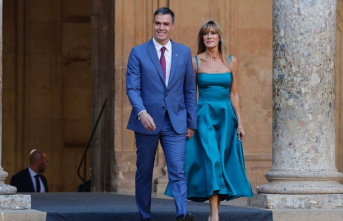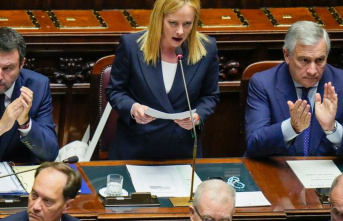The AfD insists before the Federal Constitutional Court on government funding in the millions for its affiliated Desiderius Erasmus Foundation (DES). The deputy federal spokesman Peter Boehringer said in Karlsruhe immediately before the start of the negotiations that this has been disadvantaged for years in a parliamentary-democratic process that was very unfortunate. "And of course the party supporting it is indirectly disadvantaged."
So far, only the other six party-affiliated foundations have received so-called global grants from the budget of the Federal Ministry of the Interior - this year a total of 148 million euros. In addition, there are considerable funds from the budgets of other ministries for specific tasks, such as work abroad.
Funding conditions are not regulated by law. According to a Karlsruhe judgment in 1986, however, it must be ensured that "all permanent, important political trends in the Federal Republic of Germany are adequately taken into account".
Does the new budget note change the situation?
In practice, the criterion of durability is based on the fact that a party is represented in the Bundestag twice in a row. In 2021, the AfD entered the Bundestag for the second time after 2017. However, the Erasmus Foundation still does not receive any money. There is a new passage in the budget law for 2022, according to which no global grants may be granted "if there are reasonable doubts as to whether organs or employees are loyal to the constitution".
Chairwoman Doris König left open whether the Second Senate will comment on this criterion in its verdict. The AfD had already tried the procedure in 2019 and later extended its applications to new budget years several times - most recently in October. The representative of the German Bundestag, Sophie Schönberger, said that the situation had changed fundamentally with the re-entry of the AfD into the Bundestag and the new budget note, and that there was no longer any opportunity to comment on the most recent applications to the court at such short notice . In the negotiation, the point was therefore largely left out.
AfD lawyer Ulrich Vosgerau replied that the note was "evidently unconstitutional" and played no role whatsoever in the foundation's claims. These were becoming increasingly unavoidable. "If we want to see each other again in a year, we can do that."
DES Chairwoman Erika Steinbach said that the refusal to provide funds would prevent her foundation from "conservative educational work". A maximum of 50 events per year are currently possible, no scholarships can be awarded and no party archive can be set up. Of course, that also damages the AfD. In doing so, the foundation “guarantees under no circumstances” convey anti-constitutional, anti-Semitic and inhuman ideas or racism. The longtime CDU politician and former President of the Association of Expellees has now joined the AfD.
Legal regulation: "What should be in there?"
In its judgment of 1986, the constitutional court left open whether a legal basis is required for the granting of subsidies. Now there could possibly be a corresponding specification from Karlsruhe. Judge Peter Müller, the rapporteur responsible for the proceedings, also questioned very critically whether the durability of a basic political trend could really be determined solely by the fact that it was re-entered the Bundestag. What about the European elections, for example? And what if a party is not nationwide but very strong in certain regions?
The FDP parliamentary group is in favor of a law. "No money from federal funds may be used to promote right-wing cadre schools," said her parliamentary director Stephan Thomae to the editorial network Germany. A foundation law with fixed criteria should "verifiably bind the work of political foundations to the free-democratic basic order".
The head of parliament for the SPD parliamentary group, Johannes Fechner, said in Karlsruhe that his party was not against a legal regulation. But the crucial question is: "What should it say? What criteria can we use here to prevent enemies of democracy from receiving tax revenue?" It is hoped that the judgment of the constitutional judges will provide information on this. The decision will be announced in a few months at the earliest. (Az. 2 BvE 3/19)












